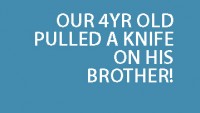
Feel free to share your thoughts? I’m trying to prepare for teenage years as much as possible… ha ha! xKelly
~~~
One thing that parents can do that really turns off an adolescent is to insult his or her dignity by treating him or her as a child – nothing brings greater hurt!
When you are trying extremely hard to be an adult, it’s easy to behave like a two-year-old when you are denying very much that you should be cared for as one!
It’s so embarrassing to be called for by parents when all your mates are allowed to make their own way home; all adolescents just ‘know’ they’ll be perfectly safe and nothing nasty will ever happen to them!
When we say we think they are inexperienced, they cry ‘But how will I ever get experienced or show I’m reliable if I’m never allowed to go anywhere?’
We all know the statements – all my friends are allowed to go and you’re the only parent who is being picky. You don’t trust me. I know how to look after myself. You never let me go anywhere… they all seem to be able to come up with the same arguments.
So how can we retain a reasonable relationship with our teenagers, help maintain dignity on both sides and somehow satisfy our need to know that they are safe, both from things that might happen in the outside world, and making decisions that haven’t been thought through?
My suggestion is, in the words of William Glasser, SAY YES AS OFTEN AS POSSIBLE!
Sounds as though we’ll be giving them carte blanche to do as they please? Not at all!
Because there’s another very little word that comes after yes… commonly pronounced as ‘if’
What I am suggesting is that as much as possible, instead of saying ‘No, because…’ you start saying ‘Yes, if…’
What you will be doing is to transfer the responsibility for thinking out sensible behaviour on to the child.
Mind you, the earlier you start this technique, the more your child will learn to make responsible decisions – you don’t have to wait until they are thirteen!
‘Yes, if…’ can be used in all sorts of situations to get the child accustomed to thinking responsibly.
For example, he asks ‘May I go bowling with my friends this afternoon?’ You know, and he knows, that this request is going to mean that he will need money, and that you will probably be called on to drive him or pick him up. So why should you say ‘Yes, if…’ when you don’t have the money or the time to drive him about?
Because if you put the responsibility on him to come up with the money and the transport, or to negotiate tasks with you that will substitute for the time you will use up driving him, he will have learned quite a lot about organising, working out ways to make money and negotiating – all very useful skills in acting responsibly.
So instead of saying ‘No, because I don’t have the money or the time to drive you’, you say ‘Yes, if you can work out a way to pay for yourself and some way to get yourself there and back. I have X tasks to accomplish today, and I won’t get through them all if I spend time driving you. See if you can work it out.’
Now, instead of an arguing, whining, cajoling, time-wasting child, you are giving him the opportunity to be a busy, planning, negotiating, responsible young adult.
If you have been used to saying ‘No’ as your first line of action, it may take a couple of times for him to appreciate that you are offering an opportunity rather than a refusal.







Be the first to comment!